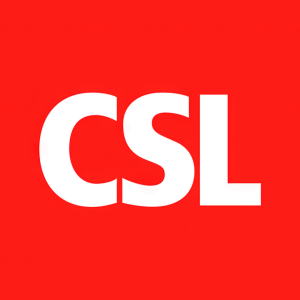CSL Seqirus Presents Real-World Evidence at OPTIONS XII Conference Highlighting Effectiveness of Influenza Vaccinations
Rhea-AI Summary
CSL Seqirus presented real-world evidence (RWE) studies at OPTIONS XII, showcasing the effectiveness of influenza vaccinations. Key findings include:
1. Cell-based vaccines showed improved relative vaccine effectiveness (rVE) compared to egg-based vaccines across different age groups, including children as young as six months.
2. A 2023/24 season study revealed cell-based vaccine effectiveness was highest in children 6 months to 3 years at 88% against laboratory-confirmed influenza.
3. MF59® adjuvanted quadrivalent vaccine showed comparability to high-dose quadrivalent vaccine in preventing flu-related ER visits and hospitalizations for adults 65+.
These studies highlight CSL Seqirus' commitment to evaluating vaccine effectiveness through RWE, complementing randomized controlled trials and providing ongoing insights into real-world outcomes.
Positive
- Cell-based vaccines demonstrated improved effectiveness compared to egg-based vaccines across age groups
- High vaccine effectiveness (88%) observed in young children aged 6 months to 3 years
- MF59® adjuvanted vaccine showed comparable effectiveness to high-dose vaccine for adults 65+
Negative
- None.
News Market Reaction 1 Alert
On the day this news was published, CSLLY gained 0.76%, reflecting a mild positive market reaction.
Data tracked by StockTitan Argus on the day of publication.
- Results from real-world evidence (RWE) studies to be presented at OPTIONS XII show the effectiveness of cell-based and MF59® adjuvanted influenza vaccines.
- Results from different studies suggested improved relative vaccine effectiveness (rVE) of cell-based vaccines compared with egg-based vaccines in preventing test-confirmed influenza across different age groups, including children as young as six months.1,2
- Results from a real-world study covering the 2023/24 season showed that cell-based vaccine was effective against medically attended, laboratory-confirmed influenza, with vaccine effectiveness (VE) highest in children six months to three years of age at
88% , compared with unvaccinated participants.3 - RWE studies can play a key role in assessing influenza vaccine effectiveness each season. RWE complements randomized controlled trials (RCT), assessing influenza vaccine effectiveness on an ongoing basis and contributing to an ever-growing data set on real-world outcomes.
Given the ever-changing nature of the influenza virus, RWE studies are valuable in assessing influenza vaccine effectiveness season-over-season. RWE is a complement to randomized controlled trial (RCT) research, assessing influenza vaccine effectiveness on an ongoing basis and providing an ever-growing data set on real-world outcomes.
"CSL Seqirus remains committed to evaluating vaccine effectiveness through the rigorous generation of real-world evidence," said Gregg Sylvester, Chief Health Officer, CSL Seqirus. "Our studies and presentations at OPTIONS XII reflect our dedication to helping to protect people against influenza and its associated medical complications across all ages, including those as young as six months old. We have chosen to include studies with test confirmed data. This approach may provide more robust evidence."
Among others, RWE studies being presented by CSL Seqirus at OPTIONS XII include:
- Results of a study of the 2022/23 influenza season in the US showed that cell-based quadrivalent (QIVc) vaccines prevented more outpatient test-confirmed influenza for those aged six months to 64 years compared with the egg-based quadrivalent (QIVe) vaccines.1
- Results from a study of the 2023/24 influenza season in the US showed that cell culture-based inactivated influenza vaccine (ccIIV4) generated real-world effectiveness against medically attended, laboratory-confirmed influenza, compared with unvaccinated participants. Vaccine effectiveness was highest in children six months to three years of age at 88%.3
- Results from a review of the 2017 to 2020 influenza seasons revealed a higher relative effectiveness of QIVc over QIVe/egg-based trivalent (TIVe) vaccines across the three influenza seasons for both test-confirmed influenza and clinically diagnosed influenza.2
- Results from a study of the 2022/23 influenza season in the US showed comparability between MF59® adjuvanted quadrivalent inactivated influenza vaccine (aQIV) and high-dose quadrivalent inactivated influenza vaccine (HD-QIV) in preventing test-confirmed influenza-related emergency department visits and/or inpatient admissions settings among adults aged 65 and over.4
"The results from these studies are a continued demonstration of the value of RWE in generating valuable insights into influenza vaccine effectiveness," said Mendel Haag, Senior Director, Center of Outcomes Research & Epidemiology, CSL Seqirus. "These studies have collected and analyzed data over several recent influenza seasons. They highlight the effectiveness of cell-based influenza vaccines in protecting people six months to 64 years old against test-confirmed influenza compared to standard egg-based vaccines, particularly in our more vulnerable populations, as well as the comparability between MF59® adjuvanted vaccines and high-dose vaccines in preventing flu-related ER and hospital admissions."
CSL Seqirus is at the forefront of influenza research and is proud to present a series of compelling data that spans across various aspects of influenza prevention and ages.
The research emphasizes the company's commitment to advancing public health through RWE and innovative vaccine technology.
ABOUT THE STUDIES PRESENTED AT OPTIONS XII
Relative vaccine effectiveness of cell-based versus egg-based quadrivalent influenza vaccines against test-confirmed influenza in
Researchers applied a retrospective test-negative design among individuals aged 6 months to 64 years vaccinated with either QIVc or QIVe in 2022-23 and who had an influenza test obtained in routine outpatient care within +/- 7 days of a documented acute respiratory or febrile illness. Exposure, outcome, and covariate data were obtained from outpatient electronic health records linked to pharmacy and medical claims.
rVE was calculated by comparing the odds of testing positive for influenza among QIVc recipients with the odds among QIVe recipients, using a doubly robust analysis that combined inverse probability of treatment weighting with multivariable adjustment. The study included 43,086 tested patients, of whom
QIVc was generally more effective than QIVe in preventing test-confirmed influenza in the outpatient care setting, with an estimated rVE of
This study showed increased relative effectiveness of QIVc compared to QIVe in preventing outpatient test-confirmed influenza in the population aged 6 months to 64 years during the 2022-23 season in
Relative effectiveness of cell-based influenza vaccines versus egg-based influenza vaccines: A review of test-confirmed and clinical diagnosis-based influenza outcomes2
Researchers identified 10 studies reporting on the rVE of QIVc vs QIVe/TIVe among persons aged 4–64 years from a prior systematic literature review (PROSPERO CRD42020160851) that included studies published between 01-January-2016 and 25-February-2022. Additionally, a scoping review was conducted to identify additional studies published between 25-February-2022 and 01-March-2024. A DerSimonian and Laird random effects model was applied for the meta-analyses of these data.
Among persons aged 4–64 years, the pooled rVE showed a consistent benefit of QIVc for both outcome types, with estimates of
Researchers found that for persons aged 4–64 years, QIVc showed increased effectiveness over QIVe/TIVe across the three influenza seasons for both test-confirmed influenza and clinically diagnosed influenza. The results do not suggest systematic over or underestimation of rVE for prevention of clinically diagnosed compared to test-confirmed influenza.
Effectiveness of cell culture-based inactivated influenza vaccine against medically-attended, laboratory-confirmed influenza in
Researchers actively recruited patients aged 6 months to 64 years with acute respiratory illness at Marshfield Clinic Health System outpatient facilities between October 2023 and May 2024. Respiratory specimens were tested using multiplex real-time reverse transcription polymerase chain reaction (RT-PCR) to identify influenza cases; controls were influenza-negative. Analyses were restricted to ccIIV4 recipients and unvaccinated participants.
Among 1,850 participants, 228 were aged 6 months to 3 years, 230 aged 4 to 8 years, 363 aged 9 to 17 years, and 1,029 aged 18 to 64 years. Adjusted VE of ccIIV4 against any influenza was
Analysis revealed that ccIIV4 was effective against medically attended, laboratory-confirmed influenza in 2023-24. ccIIV4 effectiveness was highest in children 6 months to 3 years of age and for influenza B in persons 6 months to 64 years.
Relative vaccine effectiveness of adjuvanted quadrivalent inactivated influenza vaccine (aQIV) vs high-dose quadrivalent inactivated influenza vaccine (HD-QIV) for prevention of test-confirmed influenza during the 2022-2023 influenza season4
This retrospective test negative design (TND) study included US adults age ≥65 years vaccinated with aQIV or HD-QIV who presented with acute respiratory or febrile illness during the 2022-2023 influenza season in any emergency department and/or inpatient admissions settings. Test-positive cases and test-negative controls were grouped by vaccine received. The rVE was evaluated using a doubly robust approach, combining inverse probability of treatment weighting (IPTW) and logistic regression to adjust for potential confounders.
After applying eligibility criteria, 30,911 tested vaccinated patients were included (2,361 positive cases and 28,550 negative controls). No significant differences were found in the rVE of aQIV vs. HD-QIV in preventing test-confirmed influenza in any setting (-
Researchers found that, consistent with prior evidence, these results show comparability between aQIV and HD-QIV for preventing test-confirmed influenza in any setting and in ED/IP settings among US adults ≥65 years during the 2022-2023 season.
Study Limitations
The above studies featuring RWE were subject to the typical limitations associated with retrospective analyses. Unmeasured and residual confounding remain a potential source of bias as in all observational research. The amount and quality of data available on individuals may vary and clinical and claims data do not include all data that could inform and adjust for health seeking behavior, such as individual or contextual socioeconomic data. Studies included outcomes which were obtained as part of routine care and not performed according to pre-set screening criteria, including test confirmed influenza in the retrospective test-negative designs. Vaccination in these observational studies was not randomly assigned.
About Seasonal Influenza
Influenza is a common, contagious seasonal respiratory disease that may cause severe illness and life-threatening complications in some people.5 Influenza can lead to clinical symptoms varying from mild to moderate respiratory illness to severe complications, hospitalization and in some cases, death.5 Because transmission of influenza viruses to others may occur before symptoms develop and up to five to seven days after becoming sick, the disease can be easily transmitted to others.5 The CDC recommends annual vaccination for people aged six months and older, who do not have any contraindications.6 Since it takes about two weeks after vaccination for antibodies to develop in the body that help protect against influenza virus infection, it is recommended that people get vaccinated before influenza begins spreading in their community.6 The CDC recommends that for most people who need only one dose of flu vaccine, vaccination should ideally happen in September or October.6
About CSL Seqirus
CSL Seqirus is part of CSL (ASX: CSL). As a global leader in the protection of public health and one of the largest influenza vaccine providers in the world, CSL Seqirus is committed to preventing infectious diseases, like influenza and COVID-19, and is a transcontinental partner in pandemic preparedness. With state-of-the-art production facilities in the
For more information about CSL Seqirus, visit www.CSL.com.
About CSL
CSL (ASX:CSL) (USOTC:CSLLY) is a global biotechnology company with a dynamic portfolio of lifesaving medicines, including those that treat hemophilia and immune deficiencies, vaccines to prevent influenza, and therapies in iron deficiency and nephrology. Since our start in 1916, we have been driven by our promise to save lives using the latest technologies. Today, CSL – including our three businesses: CSL Behring, CSL Seqirus and CSL Vifor – provides lifesaving products to patients in more than 100 countries and employs 32,000 people. Our unique combination of commercial strength, R&D focus and operational excellence enables us to identify, develop and deliver innovations so our patients can live life to the fullest. For inspiring stories about the promise of biotechnology, visit CSL.com/we-are-csl/vita-original-stories and follow us on Twitter.com/CSL.
For more information about CSL, visit www.CSL.com.
Intended Audience
This press release is issued from CSL Seqirus in
Forward-Looking Statements
This press release may contain forward-looking statements, including statements regarding future results, performance or achievements. These statements involve known and unknown risks, uncertainties and other factors which may cause our actual results, performance or achievements to be materially different from any future results, performances or achievements expressed or implied by the forward-looking statements. These statements reflect our current views with respect to future events and are based on assumptions and subject to risks and uncertainties. Given these uncertainties, you should not place undue reliance on these forward-looking statements.
FLUCELVAX® (Influenza Vaccine)
IMPORTANT SAFETY INFORMATION
What is FLUCELVAX® (Influenza Vaccine)?
FLUCELVAX is a vaccine that helps protect people aged 6 months and older from the flu. Vaccination with FLUCELVAX may not protect all people who receive the vaccine.
Who should not receive FLUCELVAX?
You should not receive FLUCELVAX if you have a history of severe allergic reactions (e.g., anaphylaxis) to any component of the vaccine.
Before receiving FLUCELVAX, tell your healthcare provider about all medical conditions, including if you:
- have ever had Guillain-Barré syndrome (severe muscle weakness) within six weeks after getting a flu vaccine. The decision to give FLUCELVAX should be made by your healthcare provider, based on careful consideration of the potential benefits and risks.
- have problems with your immune system or are taking certain medications that suppress your immune system, as these may reduce your immune response to the vaccine
- have ever fainted when receiving a vaccine
What are the most common side effects of FLUCELVAX?
- pain and/or redness where the vaccine was given
- headache
- extreme tiredness
- muscle aches
Additional side effects seen in children include:
- tenderness, bruising and/or a raised hardened area where the vaccine was given
- sleepiness
- irritability
- diarrhea
- changes in eating habits
- feeling unwell (malaise)
These are not all of the possible side effects of FLUCELVAX.
You can ask your healthcare provider for more information and for advice about any side effects that concern you.
What do I do if I have side effects?
Report any severe or unusual side effects to your healthcare provider.
To report SUSPECTED ADVERSE REACTIONS, contact CSL Seqirus at 1-855-358-8966 or VAERS at 1‐800‐822‐7967 or www.vaers.hhs.gov.
Before receiving this vaccine, please see the full US Prescribing Information for FLUCELVAX. You can ask your healthcare provider or pharmacist for information about FLUCELVAX that is written for healthcare professionals.
FLUAD® (Influenza Vaccine, Adjuvanted)
IMPORTANT SAFETY INFORMATION
What is FLUAD® (Influenza Vaccine, Adjuvanted)?
FLUAD is a vaccine that helps protect people aged 65 years and older from the flu. Vaccination with FLUAD may not protect all people who receive the vaccine.
Who should not receive FLUAD?
You should not receive FLUAD if you have a history of severe allergic reactions (e.g., anaphylaxis) to any component of the vaccine, including egg protein, or to a previous influenza vaccine.
Before receiving FLUAD, tell your healthcare provider about all medical conditions, including if you:
- have ever had Guillain-Barré syndrome (severe muscle weakness) within six weeks after getting a flu vaccine. The decision to give FLUAD should be made by your healthcare provider, based on careful consideration of the potential benefits and risks
- have problems with your immune system or are taking certain medications that suppress your immune system, as these may reduce your immune response to the vaccine
- have ever fainted when receiving a vaccine
What are the most common side effects of FLUAD?
- Pain and tenderness where vaccine was given
- Muscle ache
- Tiredness
- Headache
These are not all of the possible side effects of FLUAD.
You can ask your healthcare provider for more information and for advice about any side effects that concern you.
What do I do if I have side effects?
Report any severe or unusual side effects to your healthcare provider.
To report SUSPECTED ADVERSE REACTIONS, contact CSL Seqirus at 1-855-358-8966 or VAERS at 1-800-822-7967 and www.vaers.hhs.gov.
Before receiving this vaccine, please see the full US Prescribing Information for FLUAD. You can ask your healthcare provider or pharmacist for information about FLUAD that is written for healthcare professionals.
###
MEDIA CONTACT
Em Dekonor
+44 (0)7920500496
Emmanuella.Dekonor@seqirus.com
REFERENCES
1 Stein, A. et al (2024). Relative vaccine effectiveness of cell-based versus egg-based quadrivalent influenza vaccines against test-confirmed influenza in
2 Imran, M. et al (2024). Relative effectiveness of cell-based influenza vaccines versus egg-based influenza vaccines: A review of test-confirmed and clinical diagnosis-based influenza outcomes.
3 Huong Q Nguyen et al. (2024) Effectiveness of cell culture-based inactivated influenza vaccine against medically-attended, laboratory-confirmed influenza in
4 Imran, M. et al (2024). Relative vaccine effectiveness of adjuvanted quadrivalent inactivated influenza vaccine (aQIV) vs high-dose quadrivalent inactivated influenza vaccine (HD-QIV) for prevention of test-confirmed influenza during the 2022-2023 influenza season.
5 CDC. (2024). Key Facts About Influenza (Flu). Retrieved from: https://www.cdc.gov/flu/about/keyfacts.htm. Accessed September 2024.
6 CDC. (2024). Who Needs a Flu Vaccine and When. Retrieved from: https://www.cdc.gov/flu/prevent/vaccinations.htm. Accessed September 2024.
![]() View original content:https://www.prnewswire.com/news-releases/csl-seqirus-presents-real-world-evidence-at-options-xii-conference-highlighting-effectiveness-of-influenza-vaccinations-302264229.html
View original content:https://www.prnewswire.com/news-releases/csl-seqirus-presents-real-world-evidence-at-options-xii-conference-highlighting-effectiveness-of-influenza-vaccinations-302264229.html
SOURCE CSL Seqirus







